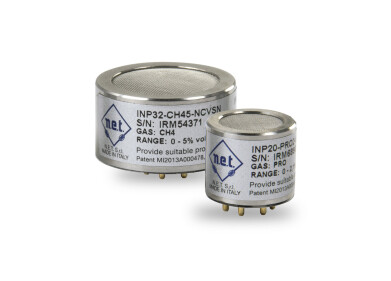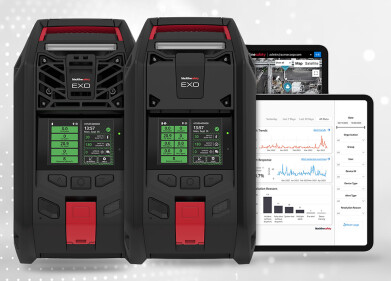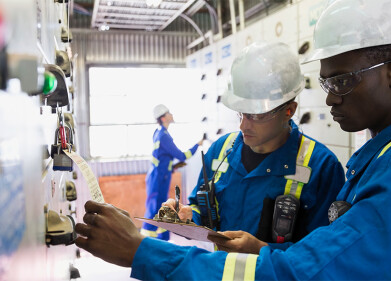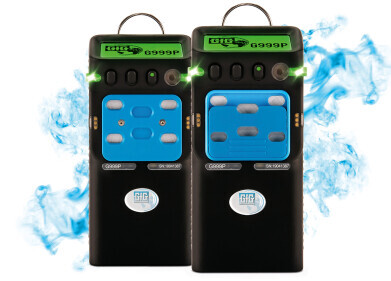Gas detector
WirelessHART gas leak detector adds sensors for ammonia and hydrocarbons
Nov 28 2019
United Electric Controls has added ammonia and hydrocarbons sensors to its Vanguard WirelessHART Gas Detector. Wireless gas detection reduces compliance costs and improves safety by eliminating the need for wiring and terminations, reducing installation costs by as much as 80 percent and enabling greater coverage density. United Electric Controls WirelessHART gas leak detectors reduce costs and improve safety further because they can run on a single battery for five or more years.
“By adding ammonia and additional hydrocarbons to our popular Vanguard line, we extend the benefits of our WirelessHART solution to provide more flexibility for improving plant safety and complying with emissions regulations. Detection of toxic and combustible gases is critical to both plant safety and emissions monitoring. Wireless technology makes it much more affordable to install gas detectors in areas of the plant that are hard to reach or where running new power or communication wires is cost-prohibitive,” said Chris Frail, Vanguard product manager.
Ammonia leak detection is critical in chemical plants that produce or store it for use in their processes. A good example is temporary storage tanks, which must be monitored for the presence of fugitive vapours constantly, but for which wiring communications and power can be costly and labor-intensive. Wireless detectors make it easy and affordable to deploy or redeploy sensors where and when they are needed.
Ammonia gas leaks in food and beverage plants and other settings where refrigeration is in use are increasingly common as international regulations drive ammonia to replace fluorocarbon refrigerants. Ammonia is popular for this because it is readily available, has low Global Warming Potential (GWP) and Ozone Depletion (ODP) values and is a generally cost-effective solution, but it is also both toxic and combustible, which requires real-time monitoring.
In the power industry, ammonia is used to reduce nitrogen oxide (NO) — the chemical that creates smog and acid rain (NOx) -- in flue gas in coal-plants before it enters the atmosphere. Leaks are possible during operation or in storage areas.
Cost-effective leakage of non-methane hydrocarbon gases (NMHCs) such as butane (CH4H10), pentane (C5H12), and propane (C3H8) are also increasingly necessary for plant safety and regulatory compliance.
In the power industry, for example, remote locations are increasingly moving to liquefied propane gas (LPG) as a power source over alternatives like diesel and fuel oil because it is more environmentally friendly. Storage tanks and transportation for these would require monitoring for leaks.
Refineries, petrochemical plants, and other downstream operations produce hydrocarbon gases, such as propane, heptane, and butane for applications from primary fuel sources to byproducts of other chemical reactions. Each point of use or storage has the potential for leaks that can be toxic, flammable, explosive, or harm the environment.
WirelessHART Vanguard Gas Detectors interface with existing networks to provide continuous coverage while reducing the cost of detecting toxic and combustible gases. Vanguard gas detectors handle a broad ambient operating temperature range (-40°C to 65°C); feature enhanced zero stability, and are equipped with interchangeable firmware that enables measurement of additional gases without changing the base unit.
Sensor heads for hydrocarbons gases will be available in January of 2020. In addition to NH3and hydrocarbons gas leak monitoring, Vanguard offers interchangeable sensor heads for methane (CH4), carbon monoxide (CO), and hydrogen sulfide (H2S.) Future Vanguard versions will detect other gases, including hydrogen from electric generators and battery rooms and oxygen that might be depleted in continuous emissions monitoring (CEM) shelters.
Digital Edition
PIN 25.6 Buyers' Guide
January 2025
Buyers' Guide Directory - Product Listings by Category - Suppliers Listings (A-Z) Articles Analytical Instrumentation - ASTM D7042: The Quantum Leap in Viscosity Testing Technology -...
View all digital editions
Events
Mar 10 2025 Stavanger, Norway
Mar 10 2025 Amsterdam, Netherlands
Mar 11 2025 Rotterdam, Netherlands
Mar 11 2025 Perth, WA, Australia
Mar 12 2025 Almaty, Kazakhstan













.tiff.jpg)
.jpg)




